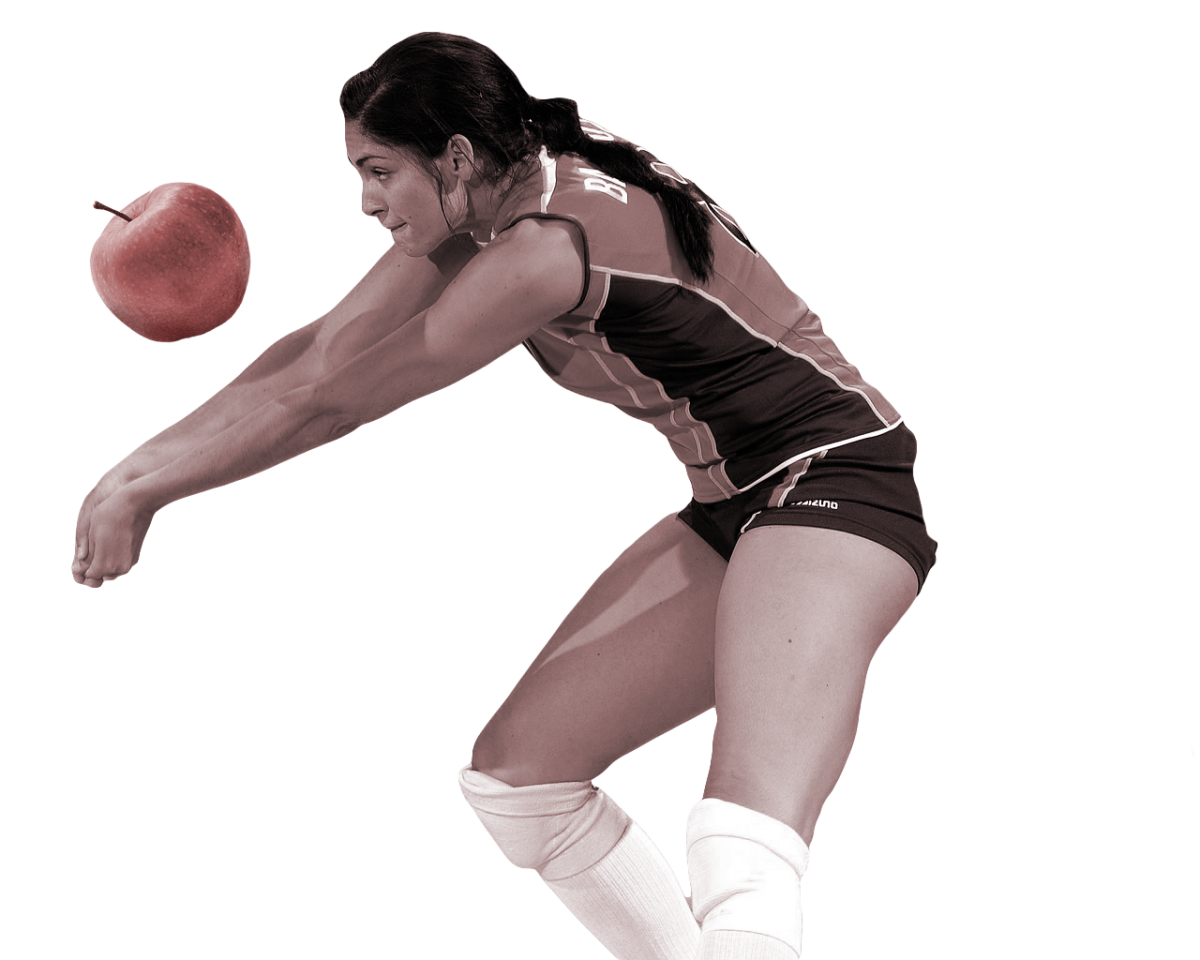Last October, the NJIT Men’s Soccer team was in Nashville, Tennessee preparing for a game against Lipscomb University. This was the team’s fourth conference game of the season and game 15 overall for the NJIT Highlanders.
“I was rooming with Thomas Radon, and we were in the room together and we had like an hour or so to kill before we run out to dinner,” said Nicholas Kozdron, a junior and a defender on the team.
“Nick and I were talking with our assistant coach who told us to watch a documentary which we really got into,” said Radon, a junior and central midfielder for the team.
“So, we decided that we were just going to watch something on Netflix and we watched ‘The Game Changers,’” Kozdron said. “Funny enough, after watching only half of it and then going to dinner, we decided that from that very first dinner we were going to go plant-based.”
“The Game Changers” is a 2019 documentary that follows former mixed martial artist James Wilks on a journey of meeting vegans who are among the best elite athletes in the world, asserting the claim that a plant-based, meat free diet will result in benefits in both athletic performance and overall health.
Radon said “It was time to kick off and maybe it was placebo or the excitement but I felt lighter and more energized than ever. During the game there was no feeling of early fatigue or tired legs at all. I felt great and we went on to win a very important game.”
“We decided to keep it going up until we weren’t going to do so well both individually, like with our own health, and as a team,” Kozdron continued. “But things were going really well [with the diet] so we just kept doing it, and now it’s become a big part of, I think, both of our lifestyles. And then, you know, people on our team started following, whether they also watched “The Game Changers” or just wanting to try it out because they wanted to see what it was like.”
“They were asking me how I felt like, did I feel like I was lacking anything,” Kozdron added. “I said no, I honestly felt better than what I was feeling before. I felt more energized, I felt like I was eating cleaner—which I was—and I just felt overall a betterment in my diet.”
“Looking back I noticed that all these little pains went away that used to just be uncomfortable before, like ankle swelling or increased stiffness,” Radon said. “It seemed like I didn’t have the slightest issue for the rest of the season. The big thing I noticed was waking up all of a sudden became much easier! I would wake up and pop out of bed ready for class, lift and training full of energy. That was probably my favorite effect of the diet because waking up sometimes can be difficult and falling back asleep feels like such a waste of time when it does happen.”
Although Kozdron and Radon became a part of a minority of NJIT athletes, they were not alone. Roque Nido, a sophomore and a setter on the Men’s Volleyball team, has been a plant-based athlete since last July.
“The reason why I did this was because I was looking for an edge when it came to recovery from training and also lowering inflammation in the body,” Nido said. “I have always struggled with patellar tendonitis because volleyball is a high impact sport where we are always jumping.”
Nido said that he had watched another documentary on Netflix called “What the Health,” and decided to try a plant-based diet. “When I first transitioned to plant-based I did feel a positive impact on performance, but the biggest difference was during recovery and that inflammation I talked about…. After going plant-based I felt the inflammation decreased significantly and the pain was reduced as well.”
When asked if the health effects could have come from an overall healthier diet as opposed to being attributed specifically to a lack of animal products, Nido said, “I think it comes from eating no meat. I’ve always eaten pretty healthy and I noticed a change.”
Alahna Diaz, a senior on the Women’s Volleyball team, has been a vegan for six months since watching “The Game Changers.” Diaz said “Performance-wise I feel more active and less sore. I do feel less tired around the day, it’s easier for me to wake up in the morning, and an increased sense of sharpness. I feel more aware.”
“It was so easy,” Diaz said. “I think the easiest diet change I’ve ever done… It also completely eliminated my cravings. Like after my research, animal products didn’t just seem as appealing to eat anymore. You kind of get grossed out knowing all the chemicals they put into them!” Diaz also said that about one-third of her team has transitioned to a plant-based diet.
Marissa McDonald, a freshman on the Women’s Basketball team, has been a vegan for two years. “I originally did it for ethical reasons and the mistreatment of animals. But once I started it, health became another factor that kept me going.”
“I believe I perform better under this diet,” McDonald said, “because ever since I went vegan I started to feel a lot healthier, I started to get sick less (I got sick a lot more before, even though I still get sick now), and I felt like I had more energy.”
Guido Liwski, a freshman on the fencing team, said that he has been a vegan for over a year. “I thought about it for a long time and my main reasons were animal rights and environmental causes/climate change. I finally made the switch when I researched the health impact of animal consumption and the benefits on athletic performance that I could get from a plant-based diet.”
“As an athlete,” Liwski said, “my daily protein intake should be 180g. In order to achieve this, my diet consists mostly of beans and legumes, tofu, tempeh, nuts/nut butters, seeds and vegan protein powder. I try to replace simple carbs with complex ones (quinoa instead of rice, oatmeal instead of cereal, sweet potatoes instead of regular ones, etc.). Finally lots of veggies (different colors) to provide all the fiber, vitamin/minerals and phytonutrients. Also 5000 mcg of B12 vitamin supplement a day.”
Liwski continued, saying that “I’ve not only performed better since I made the switch to a plant-based diet but I also feel better overall. I feel less bloating and inflammation and more stabilized energy during the day. Keeping a vegan diet forces me to keep track and be mindful of everything that goes into my body.”
Liwski is joined by another vegan on the fencing team, freshman Dominika Pawlowska. “It was more like a process for me,” she said. “First I went vegetarian for a few months and then I started cutting out dairy and eggs. Now I’ve been fully vegan for over four years.”
“I did it mostly because of the ethical reasons,” Pawlowska said. “I decided that I don’t want to support the meat and dairy industry. I also discovered that this type of diet is very beneficial for athletes and that it could improve my performance if done properly…. Now I’m just used to performing on this diet. For sure I don’t feel heavy and my recovery is quicker.”
Matthew DaSilva, a junior on both the Cross Country and Track team, said, “I became plant-based right before I entered college… It was caused by talking to a few teachers from high school, some documentaries, and a lot of independent research to make my decision. I ended up making the switch to being plant-based because I wanted to take an active approach in leading a healthier lifestyle and trying to make better choices for the planet.”
“Based on my times,” DaSilva said, “my athletic performance has improved for some events. Personally, the longer events I run have shown a big improvement while the shorter events have remained about the same. Physically though, I feel much better and more energetic than I did when eating a traditional diet…. For me it was also really hard because I come from a traditional Portuguese household; culturally the diet consists almost entirely of fish, pork, and chicken.”
Kozdron said that, “a lot of people showed interest and wanted to try it and then some people just said it was too difficult to maintain with a cafeteria like GDS.”
“Other people,” Kozdron continued, “said that they tried it for a week and just went back and said it was too difficult because they cooked everything on their own living at home. Some people wanted to try it, but were scared of the outcome, whether it would help or not. So, I mean, there was interest and I feel like there always will be interest only because it is a dietary change that a lot of people don’t consider making, only because it is a big commitment.”
“If someone sparked interest, but didn’t know where to start,” Kozdron suggested, “I’d say just try one meal a day. But don’t make it an easy meal, like breakfast. You know, breakfast is fairly easy to avoid animal products—you’re not going to have a steak for breakfast—but, challenge yourself, maybe make it a dinner or a lunch.”
According to Kozdron and Radon, a total of five soccer players on the Men’s team had turned to a plant-based diet that season. “[It’s] really cool to see,” Radon said, “because they are doing it for health and fitness which shows how much the players actually care about the success of our team to make such a drastic change in their lives for the betterment of the NJIT Men’s Soccer program.”


























